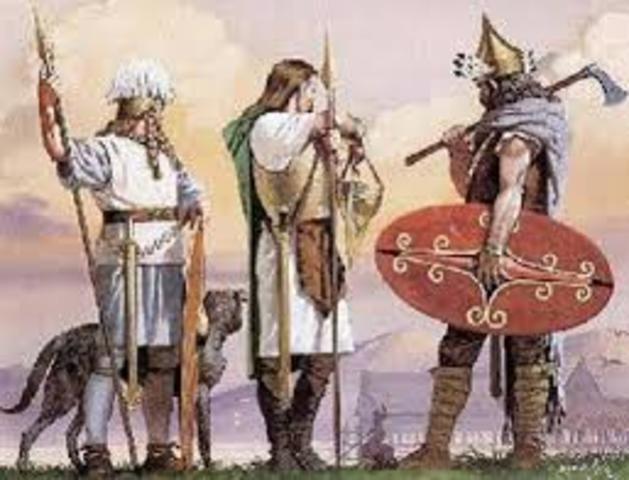

Sensing their sudden anxiety, the Romans attacked. According to Plutarch "Marius washed his hands, and lifting them up to heaven, vowed to make a sacrifice of 100 beasts should victory be his."The Romans got into position first, therefore the sun would be reflecting off the Roman's armor. Marius made a final sacrifice to the gods. Behind them came the 197,000 strong infantry. The 13,000 strong Cimbri cavalry rode onto the battlefield. Marius to determine the battle ground, and Marius decided for the Raudine Plain, 5 km from Vercelli. Marius rejected and instead, he brought forward the captive king of the Teutons Teutobod Up to this time, the Cimbri did not know about the defeat of the Teutons Now, Boiorix. The Cimbri would not fight against the Romans if they were allowed to keep the land. The leader of the Cimbri Boiorix made a peace proposal to Marius. they had to carry all equipment and military gear by themselves - therefore they were also called 'muli Mariani' (mules of Marius). His soldiers were part of the reformed army, i.e. In the meantime, Roman consul Gaius Marius who had successfully defeated the Teutons the previous year in the battle of Aqua Sextiae, moved with his troops to Northern Italy to unite with the troops of Catulus. Nevertheless, they devastated the entire landscape.
#Cimbri battle of arausio full
In full admiration of the Roman courage, they granted the defenders free passage. The Cimbri attacked the last defenders beyond the Etsch. But as the Cimbri flooded over the Alpes he gave up the passes and retreated behind the river Etsch. The Roman commander Quintus Lutatius Catulus had the task to secure the Alpine passes. They had defeated the Romans in several battles, such as the Battle at Noreia (and the battle of Arausio (. It was the Cimbri who had separated from the other tribes and penetrated Northern Italy which belonged to Roman Territory. We do not know what caused the Cimbri to leave their settlements at the Northern Sea together with the tribes of Teutons and Ambrones and to wander throughout Europe looking for new settlement area. The Battle of Vercellae was the last and decisive battle between the migratory Germanic tribe of the Cimbri and the Romans. History would have taken a completely different term.and probably I would also not be writing this blog.

Then let me tell you the story about this important event, at least important for the progress of the Roman Empire Just try to image if the Germanic plans to invade Rome would have been successful and possibly the Roman Empire as we know it would never have come into existence. Well, then raise your hands if you have ever heart about the Battle of Vercellae I don't see many. The entire tribe of the Cimbri was virtually wiped out and the plans of the Germanic tribes of an invasion of Rome was put to an end. On July 30 101 BC the Battle of the Raudine Plain took place, the Roman victory of Consul Gaius Marius over the invading Germanic tribe of the Cimbri near the settlement of Vercellae in Cisalpine Gaul. Marius and the Battle of the Raudine Plain. Marius and the Battle of the Raudine Plain Marius and the Battle of the Raudine Plain


 0 kommentar(er)
0 kommentar(er)
